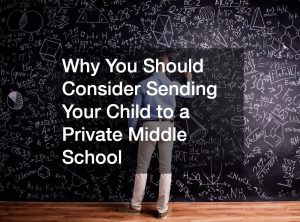Learning begins literally from birth. Once babies are born, they learn to distinguish their environment using their senses. Then, they develop further and learn to articulate their thoughts until they get to go to kindergarten.
This period between a child’s infancy and the moment they begin kindergarten is defined as early childhood. Apart from the natural learning children do during this time, formal early childhood education is crucial to developing their academic, social, and emotional skills.
The Benefits of Early Childhood Education
 Children absorb information like sponges, especially between the ages of two and six. This is why this period is essential in their development. Early childhood education or preschool helps children absorb information and develop in a more structured manner.
Children absorb information like sponges, especially between the ages of two and six. This is why this period is essential in their development. Early childhood education or preschool helps children absorb information and develop in a more structured manner.
What’s more, preschool helps children have an advantage once they start formal schooling in kindergarten. Through a variety of educational games and activities, preschool teachers help children acquire the necessary academic skills that prepare them for the demands of school.
A study conducted by early childhood education experts in the U.S. entitled “The Current State of Scientific Knowledge on Pre-Kindergarten Effects” showed that children who enrol in preschool programs are better prepared for kindergarten than those who don’t.
Apart from that, preschool acts as a foundation of learning for children in the following ways:
1. Preschool helps children learn the ABCs and 123s
Numbers, letters, colours, and shapes — these are the building blocks of learning. While children can learn these things at their homes, the better-planned way of teaching in an international preschool helps children in Singapore learn at their own pace and in fun ways.
For example, children learn colours and shapes through colouring book activities. They learn to spell and sound out letters with storytelling. They learn to count using toys and games. While they are having fun, they’re also acquiring academic skills that will help them as they move up and achieve further academic milestones.
2. Preschool helps children learn in a structured setting
Teachers act as authority figures in the classroom so preschool pupils learn to follow their instructions. In addition, they learn to share with other pupils not only toys but also knowledge and stories. As such, they get to learn and apply their lessons in a structured and nurturing environment.
This is crucial to a child’s development since following rules is one of the most important things they must learn. When they have discipline, they can get a better grasp of the things they will learn as they advance their education.
3. Preschool helps children develop socially and emotionally
Perhaps one of the most important contributions of preschool to children’s development is the opportunity to develop socially and emotionally. Preschool is where they first learn to be independent of their parents and start forming bonds with other children and adults like their teachers.
As they form friendships with others and experience different social situations, they also experience all sorts of emotions, including joy, disappointment, and triumph. With these, they slowly develop their sense of self and build their confidence — things that are necessary as they grow and get more exposed to a bigger world.
Learning things by themselves at home can give children a good head start academically but preschool targets other areas of development. With preschool programs, not only do children acquire skills and knowledge they need to prepare for kindergarten and beyond, they do so surrounded by peers in a fun and exciting environment.
















